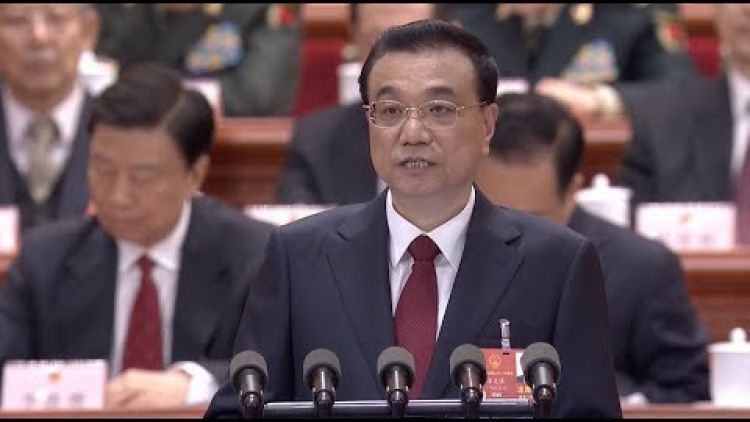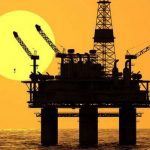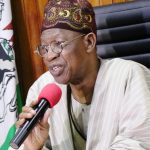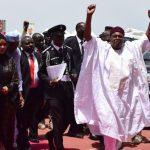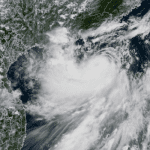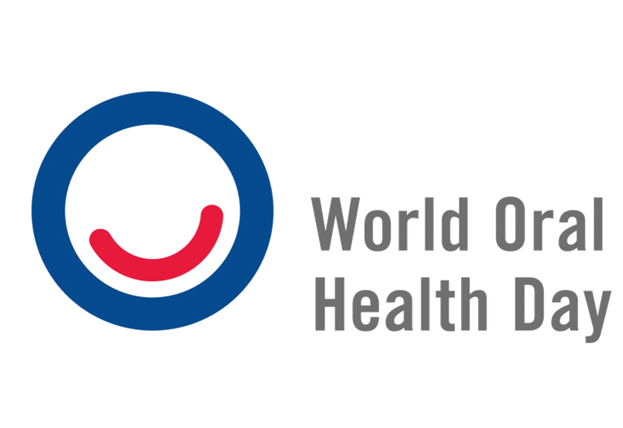Chinese Premier Li Keqiang said the country’s economic strength has reached new high over the past five years in his government work report at the opening of the first session of the 13th National People’s Congress (NPC) on Monday in Beijing.
He said that China’s gross domestic product (GDP) has risen from 54 trillion to 82.7 trillion yuan, registering average annual growth of 7.1 percent; and its share in the global economy has grown to roughly 15 percent, up from 11.4 percent.
“China’s contribution to global growth has exceeded 30 percent. Government revenue has increased from 11.7 trillion to 17.3 trillion yuan. Consumer prices rose at an average annual rate of 1.9 percent, maintaining a relatively low level of growth. More than 66 million new urban jobs have been added, and our country, with its population of over 1.3 billion, has achieved relatively full employment,” Li said.
Li pointed out the structure of the Chinese economy has seen a major transformation over the past five years.
With the share of the service sector rising from 45.3 to 51.6 percent of the economy, consumption’s contribution to growth has increased from 54.9 to 58.8 percent, becoming the main driver of growth.
High-tech manufacturing has achieved an average annual increase of 11.7 percent, and the annual grain yield has reached 600 million metric tons, he added.
While maintaining good performance in economy, China has been gradually improving its environment during the past five years, the premier said.
“To address air, water, and soil pollution, we have designed and enforced a ten-point list of measures for each and achieved solid progress. Both energy and water consumption per unit of GDP have fallen more than 20 percent, the release of major pollutants has been consistently declining, and the number of days of heavy air pollution in key cities has fallen 50 percent,” Li said.
“Forest coverage has increased by 10.87 million hectares, and the area of desertified land has been reduced by close to 2,000 square kilometers on average each year. Encouraging progress has been made in green development,” he added.
China has been enhancing its efforts to alleviate burdens of the enterprises, Li said.
“We have continued to follow a proactive fiscal policy and a prudent monetary policy. Despite a fairly big imbalance between government revenue and expenditure, China has led the way in slashing taxes and fees with the aim of using accommodative measures to strengthen the basis for sustained growth,” the premier said.
“Step by step, we have extended the replacement of business tax with value added tax (VAT) to all sectors across the country, calling time on the 66-year history of business tax. The result so far has been a tax cut of more than 2 trillion yuan. We have also adopted measures like preferential tax policies for small low-profit businesses and an overhaul of different types of fees. All in all, our market entities have seen savings of more than 3 trillion yuan,” he said.
The 13th National People’s Congress, the highest organ of state power of China exercising the legislative power, opened its first session Monday morning at the Great Hall of the People in Beijing.
Chinese President Xi Jinping, also general secretary of the Communist Party of China (CPC) Central Committee and chairman of the Central Military Commission, was present at the opening meeting. Present at the opening session were also other Party and state leaders and nearly 3,000 deputies.
Reuters
Chinese Premier Li Keqiang said the country’s economic strength has reached new high over the past five years in his government work report at the opening of the first session of the 13th National People’s Congress (NPC) on Monday in Beijing.
He said that China’s gross domestic product (GDP) has risen from 54 trillion to 82.7 trillion yuan, registering average annual growth of 7.1 percent; and its share in the global economy has grown to roughly 15 percent, up from 11.4 percent.
“China’s contribution to global growth has exceeded 30 percent. Government revenue has increased from 11.7 trillion to 17.3 trillion yuan. Consumer prices rose at an average annual rate of 1.9 percent, maintaining a relatively low level of growth. More than 66 million new urban jobs have been added, and our country, with its population of over 1.3 billion, has achieved relatively full employment,” Li said.
Li pointed out the structure of the Chinese economy has seen a major transformation over the past five years.
With the share of the service sector rising from 45.3 to 51.6 percent of the economy, consumption’s contribution to growth has increased from 54.9 to 58.8 percent, becoming the main driver of growth.
High-tech manufacturing has achieved an average annual increase of 11.7 percent, and the annual grain yield has reached 600 million metric tons, he added.
While maintaining good performance in economy, China has been gradually improving its environment during the past five years, the premier said.
“To address air, water, and soil pollution, we have designed and enforced a ten-point list of measures for each and achieved solid progress. Both energy and water consumption per unit of GDP have fallen more than 20 percent, the release of major pollutants has been consistently declining, and the number of days of heavy air pollution in key cities has fallen 50 percent,” Li said.
“Forest coverage has increased by 10.87 million hectares, and the area of desertified land has been reduced by close to 2,000 square kilometers on average each year. Encouraging progress has been made in green development,” he added.
China has been enhancing its efforts to alleviate burdens of the enterprises, Li said.
“We have continued to follow a proactive fiscal policy and a prudent monetary policy. Despite a fairly big imbalance between government revenue and expenditure, China has led the way in slashing taxes and fees with the aim of using accommodative measures to strengthen the basis for sustained growth,” the premier said.
“Step by step, we have extended the replacement of business tax with value added tax (VAT) to all sectors across the country, calling time on the 66-year history of business tax. The result so far has been a tax cut of more than 2 trillion yuan. We have also adopted measures like preferential tax policies for small low-profit businesses and an overhaul of different types of fees. All in all, our market entities have seen savings of more than 3 trillion yuan,” he said.
The 13th National People’s Congress, the highest organ of state power of China exercising the legislative power, opened its first session Monday morning at the Great Hall of the People in Beijing.
Chinese President Xi Jinping, also general secretary of the Communist Party of China (CPC) Central Committee and chairman of the Central Military Commission, was present at the opening meeting. Present at the opening session were also other Party and state leaders and nearly 3,000 deputies.
Reuters
Chinese Premier Li Keqiang said the country’s economic strength has reached new high over the past five years in his government work report at the opening of the first session of the 13th National People’s Congress (NPC) on Monday in Beijing.
He said that China’s gross domestic product (GDP) has risen from 54 trillion to 82.7 trillion yuan, registering average annual growth of 7.1 percent; and its share in the global economy has grown to roughly 15 percent, up from 11.4 percent.
“China’s contribution to global growth has exceeded 30 percent. Government revenue has increased from 11.7 trillion to 17.3 trillion yuan. Consumer prices rose at an average annual rate of 1.9 percent, maintaining a relatively low level of growth. More than 66 million new urban jobs have been added, and our country, with its population of over 1.3 billion, has achieved relatively full employment,” Li said.
Li pointed out the structure of the Chinese economy has seen a major transformation over the past five years.
With the share of the service sector rising from 45.3 to 51.6 percent of the economy, consumption’s contribution to growth has increased from 54.9 to 58.8 percent, becoming the main driver of growth.
High-tech manufacturing has achieved an average annual increase of 11.7 percent, and the annual grain yield has reached 600 million metric tons, he added.
While maintaining good performance in economy, China has been gradually improving its environment during the past five years, the premier said.
“To address air, water, and soil pollution, we have designed and enforced a ten-point list of measures for each and achieved solid progress. Both energy and water consumption per unit of GDP have fallen more than 20 percent, the release of major pollutants has been consistently declining, and the number of days of heavy air pollution in key cities has fallen 50 percent,” Li said.
“Forest coverage has increased by 10.87 million hectares, and the area of desertified land has been reduced by close to 2,000 square kilometers on average each year. Encouraging progress has been made in green development,” he added.
China has been enhancing its efforts to alleviate burdens of the enterprises, Li said.
“We have continued to follow a proactive fiscal policy and a prudent monetary policy. Despite a fairly big imbalance between government revenue and expenditure, China has led the way in slashing taxes and fees with the aim of using accommodative measures to strengthen the basis for sustained growth,” the premier said.
“Step by step, we have extended the replacement of business tax with value added tax (VAT) to all sectors across the country, calling time on the 66-year history of business tax. The result so far has been a tax cut of more than 2 trillion yuan. We have also adopted measures like preferential tax policies for small low-profit businesses and an overhaul of different types of fees. All in all, our market entities have seen savings of more than 3 trillion yuan,” he said.
The 13th National People’s Congress, the highest organ of state power of China exercising the legislative power, opened its first session Monday morning at the Great Hall of the People in Beijing.
Chinese President Xi Jinping, also general secretary of the Communist Party of China (CPC) Central Committee and chairman of the Central Military Commission, was present at the opening meeting. Present at the opening session were also other Party and state leaders and nearly 3,000 deputies.
Reuters
Chinese Premier Li Keqiang said the country’s economic strength has reached new high over the past five years in his government work report at the opening of the first session of the 13th National People’s Congress (NPC) on Monday in Beijing.
He said that China’s gross domestic product (GDP) has risen from 54 trillion to 82.7 trillion yuan, registering average annual growth of 7.1 percent; and its share in the global economy has grown to roughly 15 percent, up from 11.4 percent.
“China’s contribution to global growth has exceeded 30 percent. Government revenue has increased from 11.7 trillion to 17.3 trillion yuan. Consumer prices rose at an average annual rate of 1.9 percent, maintaining a relatively low level of growth. More than 66 million new urban jobs have been added, and our country, with its population of over 1.3 billion, has achieved relatively full employment,” Li said.
Li pointed out the structure of the Chinese economy has seen a major transformation over the past five years.
With the share of the service sector rising from 45.3 to 51.6 percent of the economy, consumption’s contribution to growth has increased from 54.9 to 58.8 percent, becoming the main driver of growth.
High-tech manufacturing has achieved an average annual increase of 11.7 percent, and the annual grain yield has reached 600 million metric tons, he added.
While maintaining good performance in economy, China has been gradually improving its environment during the past five years, the premier said.
“To address air, water, and soil pollution, we have designed and enforced a ten-point list of measures for each and achieved solid progress. Both energy and water consumption per unit of GDP have fallen more than 20 percent, the release of major pollutants has been consistently declining, and the number of days of heavy air pollution in key cities has fallen 50 percent,” Li said.
“Forest coverage has increased by 10.87 million hectares, and the area of desertified land has been reduced by close to 2,000 square kilometers on average each year. Encouraging progress has been made in green development,” he added.
China has been enhancing its efforts to alleviate burdens of the enterprises, Li said.
“We have continued to follow a proactive fiscal policy and a prudent monetary policy. Despite a fairly big imbalance between government revenue and expenditure, China has led the way in slashing taxes and fees with the aim of using accommodative measures to strengthen the basis for sustained growth,” the premier said.
“Step by step, we have extended the replacement of business tax with value added tax (VAT) to all sectors across the country, calling time on the 66-year history of business tax. The result so far has been a tax cut of more than 2 trillion yuan. We have also adopted measures like preferential tax policies for small low-profit businesses and an overhaul of different types of fees. All in all, our market entities have seen savings of more than 3 trillion yuan,” he said.
The 13th National People’s Congress, the highest organ of state power of China exercising the legislative power, opened its first session Monday morning at the Great Hall of the People in Beijing.
Chinese President Xi Jinping, also general secretary of the Communist Party of China (CPC) Central Committee and chairman of the Central Military Commission, was present at the opening meeting. Present at the opening session were also other Party and state leaders and nearly 3,000 deputies.
Reuters
Chinese Premier Li Keqiang said the country’s economic strength has reached new high over the past five years in his government work report at the opening of the first session of the 13th National People’s Congress (NPC) on Monday in Beijing.
He said that China’s gross domestic product (GDP) has risen from 54 trillion to 82.7 trillion yuan, registering average annual growth of 7.1 percent; and its share in the global economy has grown to roughly 15 percent, up from 11.4 percent.
“China’s contribution to global growth has exceeded 30 percent. Government revenue has increased from 11.7 trillion to 17.3 trillion yuan. Consumer prices rose at an average annual rate of 1.9 percent, maintaining a relatively low level of growth. More than 66 million new urban jobs have been added, and our country, with its population of over 1.3 billion, has achieved relatively full employment,” Li said.
Li pointed out the structure of the Chinese economy has seen a major transformation over the past five years.
With the share of the service sector rising from 45.3 to 51.6 percent of the economy, consumption’s contribution to growth has increased from 54.9 to 58.8 percent, becoming the main driver of growth.
High-tech manufacturing has achieved an average annual increase of 11.7 percent, and the annual grain yield has reached 600 million metric tons, he added.
While maintaining good performance in economy, China has been gradually improving its environment during the past five years, the premier said.
“To address air, water, and soil pollution, we have designed and enforced a ten-point list of measures for each and achieved solid progress. Both energy and water consumption per unit of GDP have fallen more than 20 percent, the release of major pollutants has been consistently declining, and the number of days of heavy air pollution in key cities has fallen 50 percent,” Li said.
“Forest coverage has increased by 10.87 million hectares, and the area of desertified land has been reduced by close to 2,000 square kilometers on average each year. Encouraging progress has been made in green development,” he added.
China has been enhancing its efforts to alleviate burdens of the enterprises, Li said.
“We have continued to follow a proactive fiscal policy and a prudent monetary policy. Despite a fairly big imbalance between government revenue and expenditure, China has led the way in slashing taxes and fees with the aim of using accommodative measures to strengthen the basis for sustained growth,” the premier said.
“Step by step, we have extended the replacement of business tax with value added tax (VAT) to all sectors across the country, calling time on the 66-year history of business tax. The result so far has been a tax cut of more than 2 trillion yuan. We have also adopted measures like preferential tax policies for small low-profit businesses and an overhaul of different types of fees. All in all, our market entities have seen savings of more than 3 trillion yuan,” he said.
The 13th National People’s Congress, the highest organ of state power of China exercising the legislative power, opened its first session Monday morning at the Great Hall of the People in Beijing.
Chinese President Xi Jinping, also general secretary of the Communist Party of China (CPC) Central Committee and chairman of the Central Military Commission, was present at the opening meeting. Present at the opening session were also other Party and state leaders and nearly 3,000 deputies.
Reuters
Chinese Premier Li Keqiang said the country’s economic strength has reached new high over the past five years in his government work report at the opening of the first session of the 13th National People’s Congress (NPC) on Monday in Beijing.
He said that China’s gross domestic product (GDP) has risen from 54 trillion to 82.7 trillion yuan, registering average annual growth of 7.1 percent; and its share in the global economy has grown to roughly 15 percent, up from 11.4 percent.
“China’s contribution to global growth has exceeded 30 percent. Government revenue has increased from 11.7 trillion to 17.3 trillion yuan. Consumer prices rose at an average annual rate of 1.9 percent, maintaining a relatively low level of growth. More than 66 million new urban jobs have been added, and our country, with its population of over 1.3 billion, has achieved relatively full employment,” Li said.
Li pointed out the structure of the Chinese economy has seen a major transformation over the past five years.
With the share of the service sector rising from 45.3 to 51.6 percent of the economy, consumption’s contribution to growth has increased from 54.9 to 58.8 percent, becoming the main driver of growth.
High-tech manufacturing has achieved an average annual increase of 11.7 percent, and the annual grain yield has reached 600 million metric tons, he added.
While maintaining good performance in economy, China has been gradually improving its environment during the past five years, the premier said.
“To address air, water, and soil pollution, we have designed and enforced a ten-point list of measures for each and achieved solid progress. Both energy and water consumption per unit of GDP have fallen more than 20 percent, the release of major pollutants has been consistently declining, and the number of days of heavy air pollution in key cities has fallen 50 percent,” Li said.
“Forest coverage has increased by 10.87 million hectares, and the area of desertified land has been reduced by close to 2,000 square kilometers on average each year. Encouraging progress has been made in green development,” he added.
China has been enhancing its efforts to alleviate burdens of the enterprises, Li said.
“We have continued to follow a proactive fiscal policy and a prudent monetary policy. Despite a fairly big imbalance between government revenue and expenditure, China has led the way in slashing taxes and fees with the aim of using accommodative measures to strengthen the basis for sustained growth,” the premier said.
“Step by step, we have extended the replacement of business tax with value added tax (VAT) to all sectors across the country, calling time on the 66-year history of business tax. The result so far has been a tax cut of more than 2 trillion yuan. We have also adopted measures like preferential tax policies for small low-profit businesses and an overhaul of different types of fees. All in all, our market entities have seen savings of more than 3 trillion yuan,” he said.
The 13th National People’s Congress, the highest organ of state power of China exercising the legislative power, opened its first session Monday morning at the Great Hall of the People in Beijing.
Chinese President Xi Jinping, also general secretary of the Communist Party of China (CPC) Central Committee and chairman of the Central Military Commission, was present at the opening meeting. Present at the opening session were also other Party and state leaders and nearly 3,000 deputies.
Reuters
Chinese Premier Li Keqiang said the country’s economic strength has reached new high over the past five years in his government work report at the opening of the first session of the 13th National People’s Congress (NPC) on Monday in Beijing.
He said that China’s gross domestic product (GDP) has risen from 54 trillion to 82.7 trillion yuan, registering average annual growth of 7.1 percent; and its share in the global economy has grown to roughly 15 percent, up from 11.4 percent.
“China’s contribution to global growth has exceeded 30 percent. Government revenue has increased from 11.7 trillion to 17.3 trillion yuan. Consumer prices rose at an average annual rate of 1.9 percent, maintaining a relatively low level of growth. More than 66 million new urban jobs have been added, and our country, with its population of over 1.3 billion, has achieved relatively full employment,” Li said.
Li pointed out the structure of the Chinese economy has seen a major transformation over the past five years.
With the share of the service sector rising from 45.3 to 51.6 percent of the economy, consumption’s contribution to growth has increased from 54.9 to 58.8 percent, becoming the main driver of growth.
High-tech manufacturing has achieved an average annual increase of 11.7 percent, and the annual grain yield has reached 600 million metric tons, he added.
While maintaining good performance in economy, China has been gradually improving its environment during the past five years, the premier said.
“To address air, water, and soil pollution, we have designed and enforced a ten-point list of measures for each and achieved solid progress. Both energy and water consumption per unit of GDP have fallen more than 20 percent, the release of major pollutants has been consistently declining, and the number of days of heavy air pollution in key cities has fallen 50 percent,” Li said.
“Forest coverage has increased by 10.87 million hectares, and the area of desertified land has been reduced by close to 2,000 square kilometers on average each year. Encouraging progress has been made in green development,” he added.
China has been enhancing its efforts to alleviate burdens of the enterprises, Li said.
“We have continued to follow a proactive fiscal policy and a prudent monetary policy. Despite a fairly big imbalance between government revenue and expenditure, China has led the way in slashing taxes and fees with the aim of using accommodative measures to strengthen the basis for sustained growth,” the premier said.
“Step by step, we have extended the replacement of business tax with value added tax (VAT) to all sectors across the country, calling time on the 66-year history of business tax. The result so far has been a tax cut of more than 2 trillion yuan. We have also adopted measures like preferential tax policies for small low-profit businesses and an overhaul of different types of fees. All in all, our market entities have seen savings of more than 3 trillion yuan,” he said.
The 13th National People’s Congress, the highest organ of state power of China exercising the legislative power, opened its first session Monday morning at the Great Hall of the People in Beijing.
Chinese President Xi Jinping, also general secretary of the Communist Party of China (CPC) Central Committee and chairman of the Central Military Commission, was present at the opening meeting. Present at the opening session were also other Party and state leaders and nearly 3,000 deputies.
Reuters
Chinese Premier Li Keqiang said the country’s economic strength has reached new high over the past five years in his government work report at the opening of the first session of the 13th National People’s Congress (NPC) on Monday in Beijing.
He said that China’s gross domestic product (GDP) has risen from 54 trillion to 82.7 trillion yuan, registering average annual growth of 7.1 percent; and its share in the global economy has grown to roughly 15 percent, up from 11.4 percent.
“China’s contribution to global growth has exceeded 30 percent. Government revenue has increased from 11.7 trillion to 17.3 trillion yuan. Consumer prices rose at an average annual rate of 1.9 percent, maintaining a relatively low level of growth. More than 66 million new urban jobs have been added, and our country, with its population of over 1.3 billion, has achieved relatively full employment,” Li said.
Li pointed out the structure of the Chinese economy has seen a major transformation over the past five years.
With the share of the service sector rising from 45.3 to 51.6 percent of the economy, consumption’s contribution to growth has increased from 54.9 to 58.8 percent, becoming the main driver of growth.
High-tech manufacturing has achieved an average annual increase of 11.7 percent, and the annual grain yield has reached 600 million metric tons, he added.
While maintaining good performance in economy, China has been gradually improving its environment during the past five years, the premier said.
“To address air, water, and soil pollution, we have designed and enforced a ten-point list of measures for each and achieved solid progress. Both energy and water consumption per unit of GDP have fallen more than 20 percent, the release of major pollutants has been consistently declining, and the number of days of heavy air pollution in key cities has fallen 50 percent,” Li said.
“Forest coverage has increased by 10.87 million hectares, and the area of desertified land has been reduced by close to 2,000 square kilometers on average each year. Encouraging progress has been made in green development,” he added.
China has been enhancing its efforts to alleviate burdens of the enterprises, Li said.
“We have continued to follow a proactive fiscal policy and a prudent monetary policy. Despite a fairly big imbalance between government revenue and expenditure, China has led the way in slashing taxes and fees with the aim of using accommodative measures to strengthen the basis for sustained growth,” the premier said.
“Step by step, we have extended the replacement of business tax with value added tax (VAT) to all sectors across the country, calling time on the 66-year history of business tax. The result so far has been a tax cut of more than 2 trillion yuan. We have also adopted measures like preferential tax policies for small low-profit businesses and an overhaul of different types of fees. All in all, our market entities have seen savings of more than 3 trillion yuan,” he said.
The 13th National People’s Congress, the highest organ of state power of China exercising the legislative power, opened its first session Monday morning at the Great Hall of the People in Beijing.
Chinese President Xi Jinping, also general secretary of the Communist Party of China (CPC) Central Committee and chairman of the Central Military Commission, was present at the opening meeting. Present at the opening session were also other Party and state leaders and nearly 3,000 deputies.
Reuters

